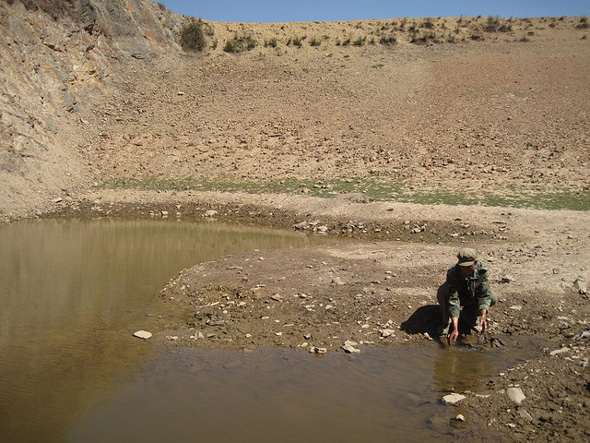The original version of this article, by Lakis Polycarpou, appeared on the Columbia Earth Institute’s State of the Planet blog.On the horn of Africa, ten million people are now at risk as the region suffers the worst drought in half a century. In China, the Yangtze – the world’s third largest river –
is drying up, parching farmers and threatening 40 percent of the nation’s hydropower capacity. In the U.S. drought now spreads
across 14 states creating conditions that could rival the dust bowl; in Texas, the cows are so thirsty now that when they finally get water, they
drink themselves to death.
And yet this apocalyptic dryness comes even as torrential springtime flooding across much of the United States flows into summer; even as half a million people are evacuated as water rises in the same drought-ridden parts of China.
It seems that this year the world is experiencing a crisis of both too little water and too much. And while these crises often occur simultaneously in different regions, they also happen in the same places as short, fierce bursts of rain punctuate long dry spells.
The Climate Connection
Most climate scientists agree that one of the likely effects of climate will be an acceleration of the global water cycle, resulting in faster evaporation and more precipitation overall. Last year, the Proceedings from the National Academy of Sciences published a study which suggested that such changes may already be underway: According to the paper, annual fresh water flowing from rivers into oceans had increased by 18 percent from 1994 to 2006. It’s not hard to see how increases in precipitation could lead to greater flood risk.
At the same time, many studies make the case that much of the world will be dramatically drier in a climate-altered future, including the Mediterranean basin, much of Southwest and Southeast Asia, Latin America, the western two-thirds of the United States among other places.
Continue reading on State of the Planet.
Sources: Associated Press, The New York Times, Proceedings from the National Academy of Sciences, Reuters, Science Magazine, University Corporation for Atmospheric Research.
Photo Credit: “Drought in SW China,” courtesy of flickr user Bert van Dijk.
 A Publication of the Stimson Center.
A Publication of the Stimson Center.







